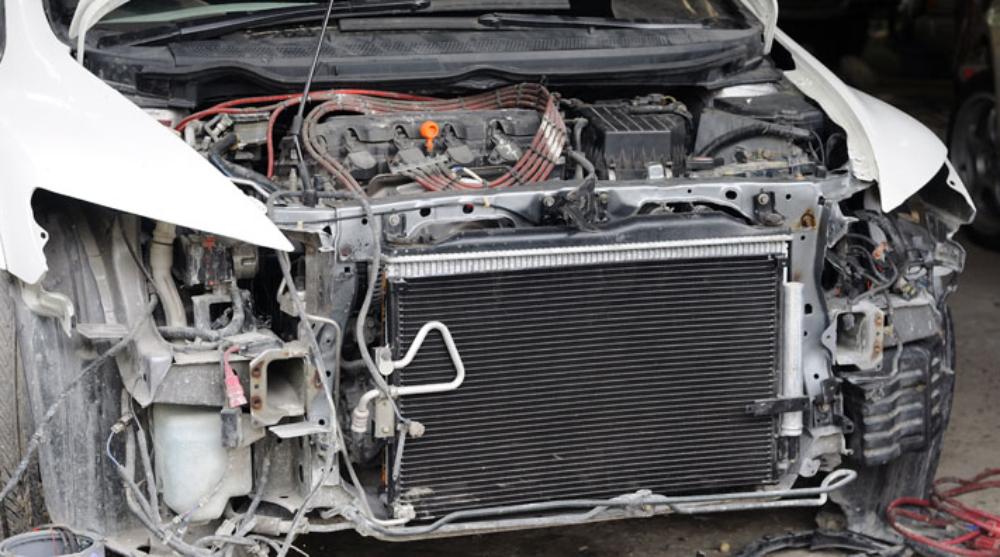When it comes to the optimal performance and longevity of your vehicle’s engine, there’s one crucial component that often takes the spotlight – the radiator. This unassuming device plays a paramount role in maintaining your engine’s temperature, ensuring it runs efficiently and avoids overheating. In this article, we’ll dive into the significance of a car radiator, how it functions, and the importance of proper maintenance.
The Role of a Car Radiator
Imagine you’re driving your car on a scorching summer day, stuck in traffic with the air conditioning on. Your engine is generating a substantial amount of heat as it powers your vehicle forward. Here’s where the radiator comes into play – it acts as a cooling system to dissipate the excess heat and prevent your engine from reaching dangerous temperatures.
A radiator works through a process of heat exchange. The hot coolant from your engine flows into the radiator, where it passes through a network of small tubes. As the air flows across these tubes, the heat is transferred from the coolant to the air, effectively lowering the temperature of the coolant. This cooled-down coolant is then circulated back to the engine to absorb more heat, and the cycle continues.
Efficiency and Engine Performance
Maintaining an optimal engine temperature is crucial for several reasons, with efficiency being at the forefront. An engine that operates at the right temperature range performs more efficiently, delivering better fuel economy and overall power. When your engine is too hot, it can lead to a phenomenon known as “knocking,” where the air-fuel mixture ignites prematurely, causing a loss of power and potential damage to the engine. On the other hand, an engine that runs too cool may not reach its peak efficiency either. This is why the role of a radiator in regulating temperature is so vital.
Preventing Overheating
One of the most dreaded scenarios for any driver is an overheated engine. An overheating engine can lead to serious consequences, ranging from engine damage to being stranded on the side of the road. This is where your trusty car radiator steps in to save the day. By consistently cooling the engine and maintaining its temperature within a safe range, the radiator acts as a reliable defence against overheating.
Maintenance Matters
Just like any other component of your vehicle, proper maintenance is key to ensuring your radiator functions optimally. Regular checks of the coolant level and quality are essential. Over time, the coolant can become contaminated with rust, debris, and other particles, reducing its efficiency in absorbing and dissipating heat. It’s recommended to flush and replace the coolant according to your vehicle manufacturer’s guidelines.
Additionally, keeping the radiator and its surrounding area clean from dirt, insects, and debris can significantly improve its performance. A clogged radiator won’t be able to effectively transfer heat, which can lead to overheating. Gently cleaning the radiator fins and grille can go a long way in preventing this issue.
Signs of Radiator Problems
Being proactive about identifying radiator issues can save you from major headaches down the road. Keep an eye out for warning signs such as:
Temperature Gauge Spikes: If you notice your temperature gauge consistently reaching high levels, it’s a clear indication that your radiator might not be functioning properly.
Coolant Leaks: Puddles of bright green, orange, or pinkish fluid beneath your car are signs of a coolant leak. Addressing this issue promptly can prevent overheating.
Low Coolant Levels: If you find yourself frequently topping up the coolant, it might be a sign of an underlying problem. Consult a mechanic to diagnose and fix the issue.
Engine Overheating: Of course, if your engine temperature warning light comes on or you observe steam coming from under the hood, pull over safely and turn off the engine to prevent further damage.
In Conclusion:
The car radiator might not be the flashiest component of your vehicle, but it certainly ranks high in terms of importance. Its role in maintaining a balanced engine temperature directly impacts your car’s efficiency, performance, and longevity. By understanding its function and taking proactive measures to maintain it, you can ensure that your engine remains cool, efficient, and ready to tackle the miles ahead. So, next time you turn on your car and hit the road, give a nod to your trusty radiator working diligently behind the scenes to keep things running smoothly.









